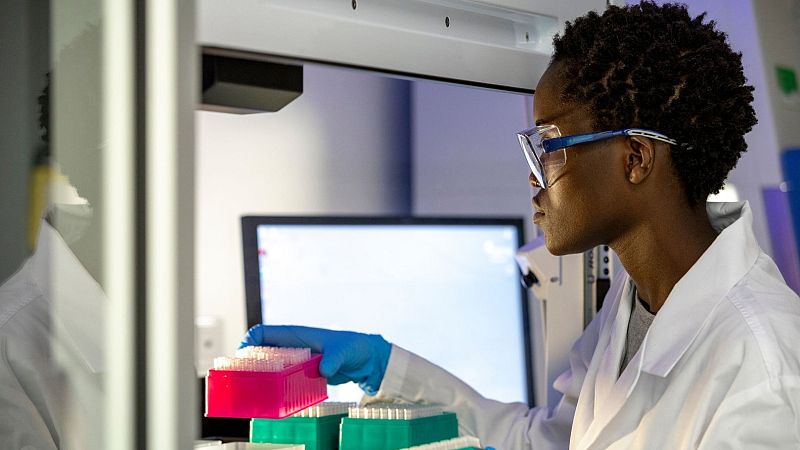
The European Union provides one-sixth of the world's cancer research funding in the public and philanthropic sectors, a new analysis shows.
The analysis, published in The Lancet Oncology journal, included nearly 108,000 cancer research awards made globally between 2016 and 2023, totalling $51.4 billion (€44 billion). It spanned government and philanthropic spending, but not private sector data.
The United States covered 57 per cent of this spending (€25.2 billion), while the EU and its member states allocated 16.8 per cent (€7.4 billion) and the United Kingdom provided 11.1 per cent (€4.9 billion) of global funding for cancer research.
Other big spenders included Japan (3.6 per cent, or €1.6 billion), Australia (2.9 per cent, or €1.3 billion), and Canada and China (each 2.6 per cent, or €1.3 billion).
Globally, investment fell every year except for 2021, when there was a sharp increase. That level has since declined – except in the EU, where investment has continued to rise, the study found.
Germany, which spent €610 million over the study period, gets most of the credit for the EU’s uptick since 2021.
Overall, the vast majority of global research funding came from wealthy countries, which invested most of their money internally. Lower-income countries accounted for just €48.4 million over the eight-year study period.
The researchers warned that the lack of research investment in lower-income countries could be worsened by US funding cuts under the Trump administration.
“It’s crucial we understand how and where money is allocated,” Michael Head, the study’s lead author and a senior research fellow at the University of Southampton in the UK, said in a statement.
Globally, 76 per cent of funding went to laboratory research, with breast cancer, blood cancer, and clinical trials all particularly well-funded.
Meanwhile, research into cancer surgery and radiotherapy was “severely underfunded” despite being common treatments, the researchers said.
Cancer is responsible for about one in six deaths worldwide, according to the World Health Organization (WHO). The global cancer toll is growing as populations age, with lower-income countries facing much of the burden due to a lack of access to timely medical care.
“Inequalities in investment across nations, and low research funding for certain treatments, can lead to an imbalance in the cancers we can tackle and the areas of the world benefiting,” Head said.







